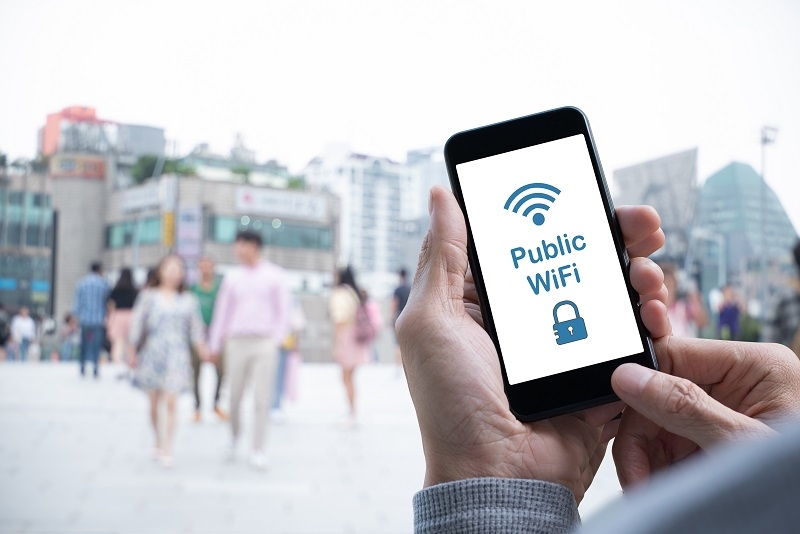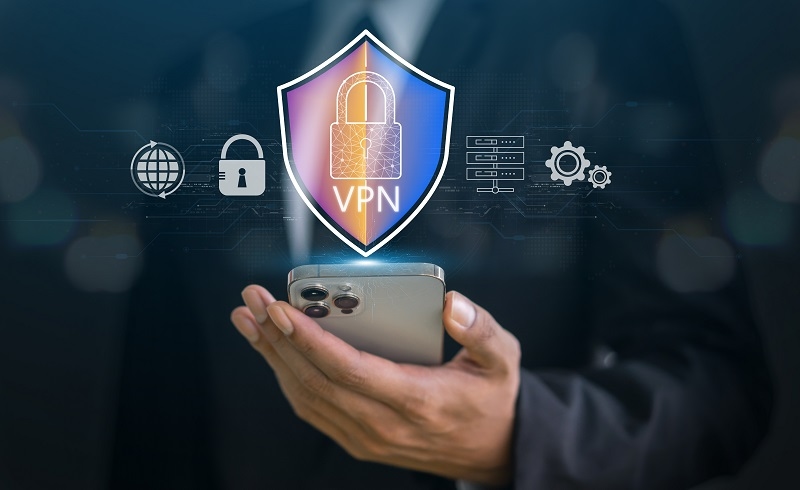
In 2025, public Wi-Fi remains a tempting convenience—but it’s also one of the biggest gateways to data theft. From airports to coffee shops, unsecured networks pose serious risks. If you’re browsing without protection, you’re putting your personal data, bank info, and even device security at risk. Knowing how to stay safe on public Wi Fi is more crucial than ever. With increasing knowledge about public hotspot malware threats and an acute increase in data breaches, it's high time that you upped your security game. Whether you want the best VPN for a coffee shop or are on the lookout for an intelligent HTTPS always use tutorial, this blog will guide you through the ultimate plan to protect your online presence.
Using free Wi-Fi at a library or café can be harmless-looking, but it leaves your device vulnerable to several threats. Public networks are usually unencrypted, so your data becomes vulnerable to:
Most hackers create networks that look just like legitimate ones. The moment you connect, they can view everything—from passwords to emails, even credit card numbers. Without a Wi-Fi security checklist, you're essentially broadcasting your data to cybercriminals.
Using public Wi-Fi? A solid VPN is more than just a suggestion - it's a must! A VPN (Virtual Private Network) encrypts everything you send and receive between your device and the internet. This helps keep your identity and personal information private on unsecured public networks. VPNs will hide your IP address, prevent tracking, and disguise your traffic by routing it through secure servers, making it almost impossible for a hacker to see what you are doing. If you are checking your email at a cafe or looking for work files at an airport, you want to ensure your online business is safe and confidential.
It comes down to the documentation on ease of use, the privacy policy documentation itself, and speed when choosing a VPN. A good definition of the best VPN for coffee shops is:
Now, you're safe from the malware threats that occur on public hotspots, even while sipping away on your latte at your local corner café.
Even with a VPN, you should still have HTTPS-Hypertext Transfer Protocol Secure-to protect you during your online activity. The SSL protocol encrypts the information that goes back and forth between your browser and the websites you visit.
One rule-don't enter personal information into any website that doesn't have the padlock or doesn't begin with https://. Follow this HTTPS always use rule:
In 2025, most cyber attacks resemble the real thing. Remaining vigilant with HTTPS is a minor step that provides massive protection.
Though VPNs and HTTPS encrypt your data, malware is a different animal altogether. Public Wi-Fi connections tend to be channels for malicious software and files—without you knowing it.
Public hotspot malware threats commonly include:
Protective measures to prevent infection:
Knowledge of these threats keeps you safer on public Wi-Fi and surfing the internet without leaving your devices open to attacks.
It's not difficult to miss a step when you're in a hurry. Follow your Wi-Fi security checklist every time you hook up to a public hotspot:
This habit protects you on all sides, blending precaution with healthy digital habits.

VPNs can be free or paid, but what suits your needs?
Pros:
Cons:
Pros:
Cons:
In comparing free vs paid VPN USA, consider what your privacy is worth to you? Free may be good for fast browsing, but if you travel a lot or work from home, a paid VPN is a no-brainer.
Public Wi-Fi is more dangerous overseas because it has less stringent regulations and uncertain network origins. When on the move:
By following these steps, you can remain secure on public Wi Fi, whether in a Paris coffee shop or a Tokyo co-working facility.
Given the world we live in with things such as AI-based phishing attacks, deepfakes, and more, the following is just a short list of some next-generation options to help enhance your online security:
Secure browsers that aim to limit the areas that can be tracked and exploited, such as Brave or Librewolf.
Don't reuse passwords. Software such as 1Password or Bitwarden generates secure, individual credentials for every website.
Use fingerprint or face screen if you have it—stronger than passwords.
Services such as NextDNS or Cloudflare filter known malware sites and phishing URLs as they happen.
Automatically logging you out of inactive sessions decreases the chance someone hijacks your active accounts.
In 2025, it isn't one tool. Layered security is necessary to maximize your security on a friendly public Wifi. CHH.
Internet security is not an option; it's what your digital life is built on. Learning how to protect yourself on public Wi-Fi means you are cognizant of the fact that threats exist, and taking action is a must. Whether it is the best VPN for coffee shop use, an HTTPS always use guide, or going through a Wi-Fi security checklist, every layer that is added works to protect you from the threats associated with public hotspots and malware attacks. The debate over free versus paid VPN USA options will continue, but it is smart to put privacy ahead of convenience. Remember, digital security is not done once and fixed for life; it is a daily habit to explore as you build your digital habits. So don't wait, start today, and build the habit of being safe online!
This content was created by AI